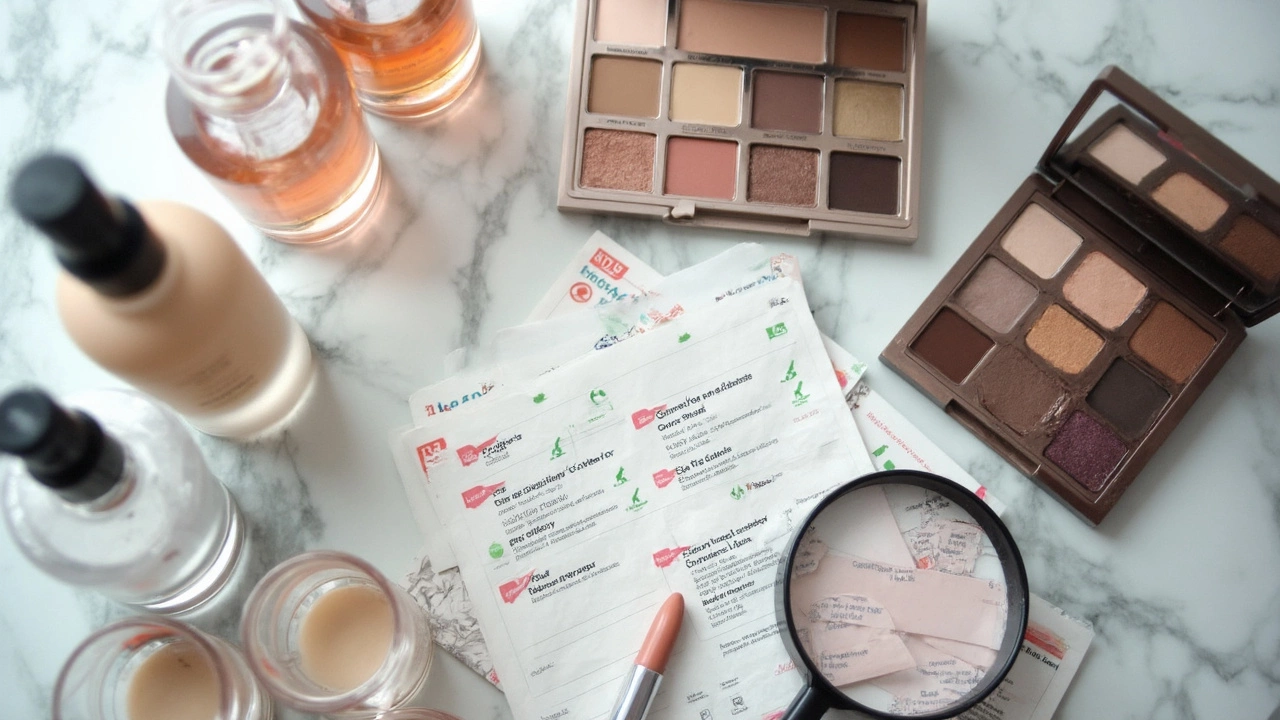Safe Makeup: Simple Ways to Keep Your Skin Happy
When you reach for a lipstick or foundation, you want color, not trouble. Safe makeup means picking products that won’t clog pores, irritate skin, or hide hidden chemicals. Below are down‑to‑earth tips that let you enjoy makeup without compromising your health.
Know What to Look for on Labels
Start by scanning the ingredient list. Skip anything that sounds like a science lab – think parabens, phthalates, formaldehyde releasers, and heavy‑metal pigments. Instead, hunt for terms like "non‑comedogenic," "hypoallergenic," or "fragrance‑free." These labels aren’t a guarantee, but they’re a good first filter.
Natural doesn’t always mean safe. Some plant extracts can be allergenic, so if you have sensitive skin, stick to short, recognizable ingredients such as shea butter, zinc oxide, or mineral iron oxides. When a product lists a long string of chemical‑sounding names, it’s worth a quick Google check.
Everyday Practices for Safer Application
Even the cleanest product can turn risky if you don’t use it right. Wash your hands and face before applying any makeup. This removes oil and bacteria that can mix with product and cause breakouts.
Keep brushes and sponges clean. A quick rinse with warm, soapy water after each use, followed by air‑drying, cuts down on mold and bacteria. If you’re on a budget, a few high‑quality brushes last longer than disposable ones, and they’re easier to sanitize.
Don’t let makeup sit on your skin all day. A light touch‑up with a mineral powder can keep shine at bay, but make sure you remove everything before bed. A gentle cleanser with surfactants like coco‑betaine will strip makeup without stripping skin.
If you love bold colors but fear irritation, try a patch test. Dab a tiny amount of the product behind your ear or on your wrist and wait 24 hours. No redness or itching? You’re good to go.
Budget‑friendly safe brands are out there. Look for UK retailers that carry cruelty‑free lines with clear ingredient disclosures. Many drugstore brands now have "clean" sub‑lines that meet safety standards without a luxury price tag.
Bottom line: safe makeup is a mix of smart buying, label reading, and good hygiene. Stick to these basics, and you’ll enjoy colour without the skin drama.
Safest Makeup to Use: What Really Goes on Your Skin
Not all makeup is created equal—and some products can do more harm than good. This article unpacks what makes a makeup product truly safe and how to spot hidden nasties on ingredient lists. Learn which ingredients to avoid, which brands lead with safety, and practical ways to keep your routine skin-friendly. It’s real talk on what you’re actually putting on your skin, from foundation to lipstick. Dive in to make smarter, safer choices with your makeup bag.
Read More
